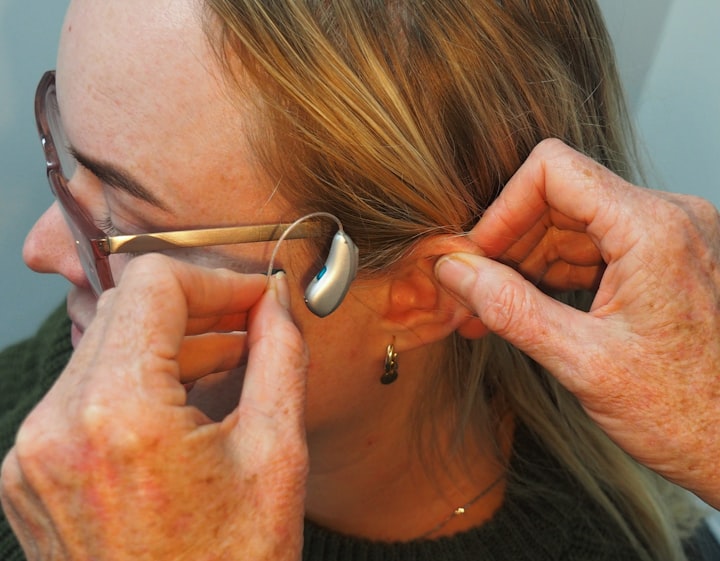The Paradoxical Principles of Minimalism
1) It’s not about the stuff 2) It’s not individualistic
I thought minimalism was about getting rid of enough stuff that you could move yourself by yourself. I am so tempted to become an extreme minimalist, so that I can pack up all of my belongings and move to a new place in 30 minutes or less. (I hadn’t even thought about this idea until I listened to Goodbye, Things by Fumio Sasaki.) My friends who helped me pack my room in the last 24 hours of my junior year would laugh at me. So would the family friends who stored my stuff over the summers. So would anyone who has ever seen one of my living spaces. But I am still tempted.
My parents were low income growing up, and are first generation Mexican-Americans, and still carry many of those values in our middle class lives. I live quite differently than my parents did growing up, but there’s some sense of “you never know when you’ll need it.” Moving around a lot as well, which I write about in Three Kinds of Pink, for no particular reason besides my parents like change, instilled the perception that I needed to remember the friends that I left behind through stuff. Or, I need to honor every single thing anyone has ever given me, such as thank you notes written on paper scraps for a fundraiser I lead. Stuff was how I held memories.
My first introduction to minimalism, like many others, was through Marie Kondo. I have a slight hipster pride in knowing about her before Spark Joy memes were relevant, since my mother introduced her book to me when I was in high school, but I am also glad that more people have discovered her and taken her message to heart. I needed to hear her tips and tricks and message to only keep things that Spark Joy, especially since I have hoarding tendencies. I listened to her as I packed up my senior dorm room, but I still ended up keeping a lot, conflating sentiment with joy. I remembered feeling happy when someone one gave me that, and I didn’t want to lose that literal scrap of joy.
When I couldn’t bring myself to fully take Spark Joy to heart, I continued to find more voices in minimalism, with Goodbye, Things by Fumio Saske and Decluttering at the Speed of Life by Dana K White being the most influential to my current thoughts on minimalism, with the first being a start for extreme minimalism, and the latter being more applicable to my current life. As I have continued to try to apply their lessons to my particular life, and moved by myself a few times, I have gotten rid of more each time. I started letting go of sentimental items. A lot of these had guilt attached to them, and I’m working on a healthier relationship with guilt. Any item that I was holding onto out of guilt was not something I loved or brought me joy, it actually worried me more, and my guilt was taking up physical space.
So, even though all I’ve been doing so far is talk about getting rid of stuff, that is not the point of minimalism. The point is that you’re happy with everything you’re surrounded by. There are people who label themselves as Maximalists to specifically protest minimalists. I get why they do so, since there are some minimalists that are annoying because they focus on the stuff, and Scandinavian design that seems to emphasize a one-chair living room, but not like your ex-boyfriend’s one-chair living room. Think a little more… elegant? I might still be an annoying minimalist, but I’m trying to say that stuff is not the point. How you feel about what you’re surrounded by is the point. Maximalists who are happy with all of their stuff could technically be minimalist too!
Watching videos of extreme minimalists is captivating, mostly because I like satisfying time-lapse videos, but also because I’m so curious as to how. How are they able to pack 47 things into a backpack and only live off of that? They are able to because they don’t only live off of that - they rely on other people. Many rely on their friends and family, hotels, AirBnBs, to house them (I haven’t checked in on how they’re doing during the pandemic). Minimalism is not about being able to move your stuff by yourself, or be happy with only your stuff, because again, it's not about the stuff. It’s about prioritizing the right things, like people. There's a lot of advice about spending money on experiences, not things. People, friends, family, are part of your experience.
Minimalism is about being surrounded by what you need, but it is not individualistic. I packed my last apartment to be a “go-to apartment,” as my father calls it. I wanted to be able to move it all by myself. I am 5 foot even, and do not have a ton of muscle mass. It is nearly impossible for me to move by myself, given that I have a queen-size mattress and a box full of journals that two grown men have struggled to carry. (Writer’s life/obsession, amiright?) Luckily, there are people who love me who have helped me with each move. When I think I need to do everything by myself, I am subtly telling myself that others do not love me. Others do love me, and want to help me, like I want to help and spend time with the people I love. We are not meant to be solitary beings.
Delving into minimalism has surprised me, from not being about stuff even though it starts with getting rid of stuff, to not being individualistic even though it’s about what makes you less overwhelmed and more content. I also did not expect it to contribute to my anti-capitalist mindset, since I no longer feel the need to focus on the next chingaderita/tschotske/bauble that can make me happy. I am more intentional about what I consume, so I consume less and am more sustainable. I don’t need to earn as much money because I try to no longer consume things that I don’t use and/or make me happy. I spend less, so I save more, and I can help others financially more. In being surrounded by less, I have found more space to confront and love myself without the definition of stuff. Plus, I have found more space for dancing!
If this has helped you rethink minimalism, please consider leaving a tip! It will be paid forward to @openyrpurse on Instagram.
About the Creator
Ariana GonBon
27yo bi Xicana. There's always more to write about, in more interesting ways than white men. Follow me @arte.con.ariana, all tips will go to @openyrpurse, both on Instagram.






Comments
There are no comments for this story
Be the first to respond and start the conversation.